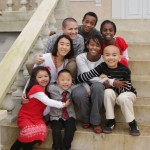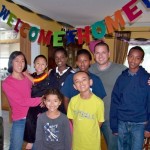I’ve been meaning to write this for a couple weeks, but we’re in the midst of a really tough season with the older kids. It’s nothing we didn’t expect or that’s not normal, but it’s kept us busy and exhausted nonetheless. It’s also made these words even more appreciated than they were when I meant to blog them.
Ty’s current favorite song is One Thing Remains. We’ve been listening to it a lot at home and singing it a lot at church.
The chorus echoes these words again and again…
Your love never fails it never gives up it never runs out on me.
Imagine if you believed the opposite in your core–that love always fails, and it has given up and run out on you. That is what our kids from hard places believe. Their behavior reflects their insecurity because their brain dictates survival and not logic. Traditional consequences are not just ineffective but damaging. Nonsensical arguments and hurtful words reign. Behavior is meant to push you away but also screams, “PLEASE!! Don’t leave me like everyone else.”
It will probably take years of love and consistency to change their paradigm. My head knows this, but my heart is frustrated at the ridiculousness that defines my day-to-day life. My flesh wants to give them what their words are asking for, but my heart is begging for the grace to give them what they need.
Enter song #2. Take My Life. Here are the lyrics that need to define my life if we’re all going to emerge on the other side.
Here am I, all of me.
Take my life, it’s all for Thee.Take my will and make it Thine
It shall be no longer mine.
My new motto: If you thought marriage was sanctifying, try adoption.
________________________________

Melissa, who was adopted from Korea as an infant, have two biological children, a son adopted at age 2 1/2 from Korea, and 3 big kids from Ethiopia (adopted at 12 to 14 years of age). She resides in Maryland where they started a ministry called The Grafted. The Grafted exists to help the local Body of Christ connect to information, resources, and organizations in order to develop a compassionate culture that cares for orphans, vulnerable children, and widows. Melissa also has a photography business that specializes in adoption homecoming and foster family photography. You can get to know Melissa better on her personal blog.

